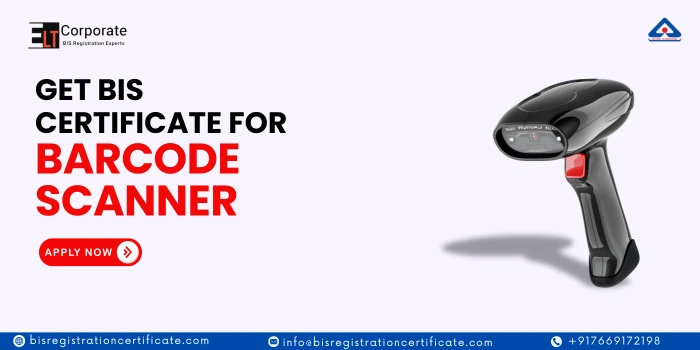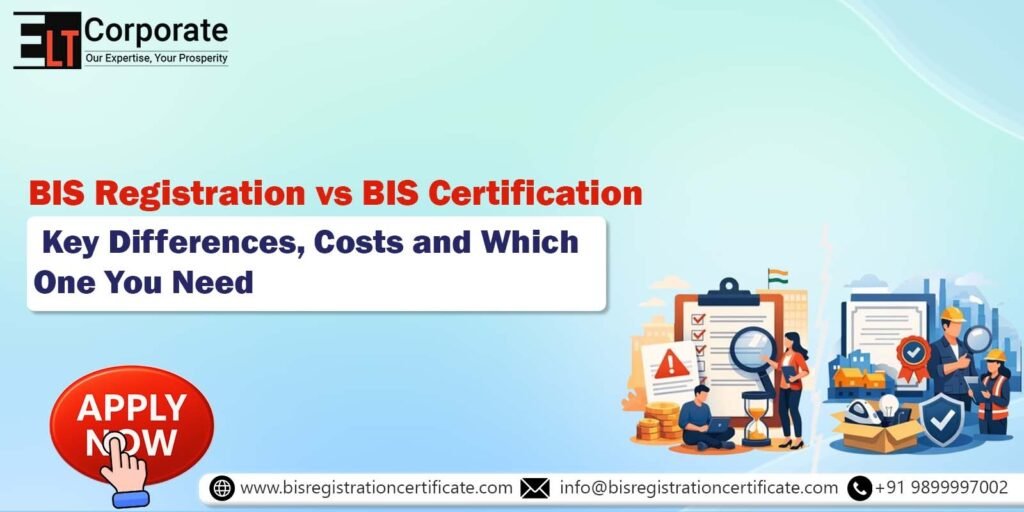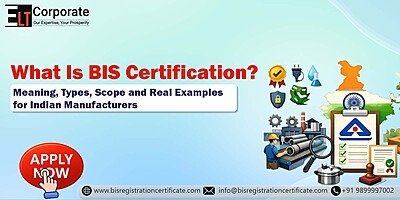If you’re a manufacturer or distributor looking to sell barcode scanners in the Indian market, you’ve likely encountered the term BIS Certificate for Barcode Scanner. But why exactly is this certification so important? The BIS Certification for Barcode Scanners is a mandatory requirement set by the BIS to ensure they meet strict safety and quality standards.
Therefore, obtaining BIS registration for barcode scanners is essential for legal compliance and market access. Without it, you cannot legally sell, import, manufacture, or sell barcode scanners in India. In this article, we’ll cover everything you need to know about obtaining BIS Certificate for Barcode Reader, including the benefits, the certification process, and many more.
What Is BIS Certificate For Barcode Scanner?
The Bureau of Indian Standards issues the BIS Certification for barcode scanners. It is a national body responsible for standardization, quality assurance, and product certification in India. The certificate is mandatory for barcode scanners and other electronics listed under the Compulsory Registration Scheme (CRS).
Under the CRS, certain electronic products, including barcode scanners, must meet Indian safety standards before being imported or sold in the country. The BIS certification ensures that your barcode scanner is safe for use, meets technical standards, and is free from potential risks that could harm users or damage the environment.
What Are The Importance Of Obtaining BIS Certification For Barcode Scanner?
Obtaining BIS certificate for barcode scanners reflects that the product adheres to Indian quality standards. It offers numerous advantages such as increased market credibility, broader customer reach, assured product safety and quality, and many more. Here we have also explained the key benefits of a BIS Certificate for a Barcode Scanner:
- Quality Assurance: Through rigorous testing in accredited laboratories, BIS certification ensures that the barcode scanner meets the required standards for performance, durability, and accuracy.
- Market Access: Compliance with mandatory regulations allows manufacturers to sell their barcode scanners in the Indian market, opening up new customer segments and opportunities.
- Consumer Confidence: having a BIS mark on the barcode scanner will indicate to consumers that the product has been verified by a reputable authority, increasing trust in its quality and reliability.
- Export Potential: obtaining a BIS certificate for barcode readers can make it more attractive to international buyers, as it demonstrates adherence to recognized quality standards.
- Brand Reputation: Achieving BIS registration for barcode readers can enhance a company’s brand image by associating its products with high standards of quality and safety.
- Competitive Advantage: In a crowded marketplace, a BIS certificate distinguishes a barcode scanner from competitors’ products that lack this certification, offering a clear edge.
Which BIS Certification Scheme Applies To Barcode Scanner?
There are 3 main BIS certificate schemes to consider when it comes to barcode scanners:
- Indian Standards Institute (ISI) Certification
- Foreign Manufacturers Certification Scheme (FMCS)
- Compulsory Registration Scheme (CRS)
Let’s briefly examine each of these certification schemes to get BIS certificate for barcode scanner:
- ISI Certification Scheme: This scheme ensures products comply with established Indian standards, guaranteeing their safety and quality for end consumers. It is primarily applicable to domestic manufacturers.
- FMCS Certification Scheme: This scheme applies to foreign manufacturers, ensuring their products meet Indian standards. While ISI and FMCS certifications aim to enforce compliance with Indian standards, FMCS is specifically tailored for products manufactured outside India. Common products under these schemes include cattle feed, cement, food items, and more.
- CRS Certification Scheme: The Compulsory Registration Scheme (CRS) focuses on electronic products, whether domestically produced or imported. Examples of products covered under CRS include mobile phones, various electronic goods, and other similar devices. For some products, obtaining an EPR (Extended Producer Responsibility) certification for e-waste management may also be necessary.
Now that we know which BIS certification applies to a barcode scanner, let’s explore the steps to obtain a BIS certificate for it.
How To Obtain BIS Certificate For Barcode Scanner? [CRS Registration Procedure]
To get BIS certificate for barcode reader under the CRS scheme, the following steps must be taken:
- Create Manufacturer’s Profile: Begin by creating a profile for the manufacturer on the BIS portal.
- Generate the Test Report Format: A Test Report Format will be generated for a BIS-accredited laboratory.
- Submit the Test Report: Once the TRF is generated, the laboratory will submit the test report under the client’s profile on the BIS portal.
- Appoint an AIR: Foreign applicants must appoint an Authorized Indian Representative (AIR), and submit an affidavit and undertaking as per Form A/B. Indian applicants need to submit an affidavit and undertaking per Format C.
- Submit the Online Form: Complete the online form submission with all the required documents and pay the necessary fees.
- Obtain the Certificate: The certificate is granted based on the product’s testing results rather than a factory visit. If your barcode scanner complies with BIS (CRS) requirements, the CRS certificate will be issued.
Also Read: ISI Certification For Electric Immersion Water Heater
Documents Required To Get BIS Certification For Barcode Scanners IS 13252 (Part 1):2010
Here we have mentioned the list of documents required to get BIS certificate for barcode scanners as per IS 13252 (Part 1):2010
- Complete filled CDF/CCL form
- Duly completed BIS application form
- Business License of the manufacturing unit (in both English and the local language)
- The scope of the Business License (provided in both English and the local language)
- The ISO certification of the manufacturer
- Marking label or details showing how the product will be marked
- Authorization letter, if the person signing the documents is not the head of the manufacturing unit
- Trademark Certificate
- Trademark Authorization Letter, if the trademark is owned by an entity other than the manufacturer
- Proof of registration in India for the Authorized Indian Representative company (required for foreign manufacturers)
- Photo ID of the Authorized Indian Representative or Authorized Signatory
- Technical Specification Sheet or User Manual of the product
How Long Does It Take To Get BIS Certificate For Barcode Scanners?
To get BIS certification for Barcode Scanners, the process can take anywhere from a few weeks to months. It depends on how quickly the product passes testing and the accuracy of your submitted documents.
Can I Import Barcode Scanners Into India Without BIS Certificate?
No, barcode scanners listed under the Compulsory Registration Scheme must have a BIS Certificate before being imported or sold in India.
What Happens If My Barcode Scanner Fails The BIS Testing Process?
If your barcode scanner fails testing, you’ll need to address the issues, make necessary changes, and resubmit the product for testing to obtain certification.








